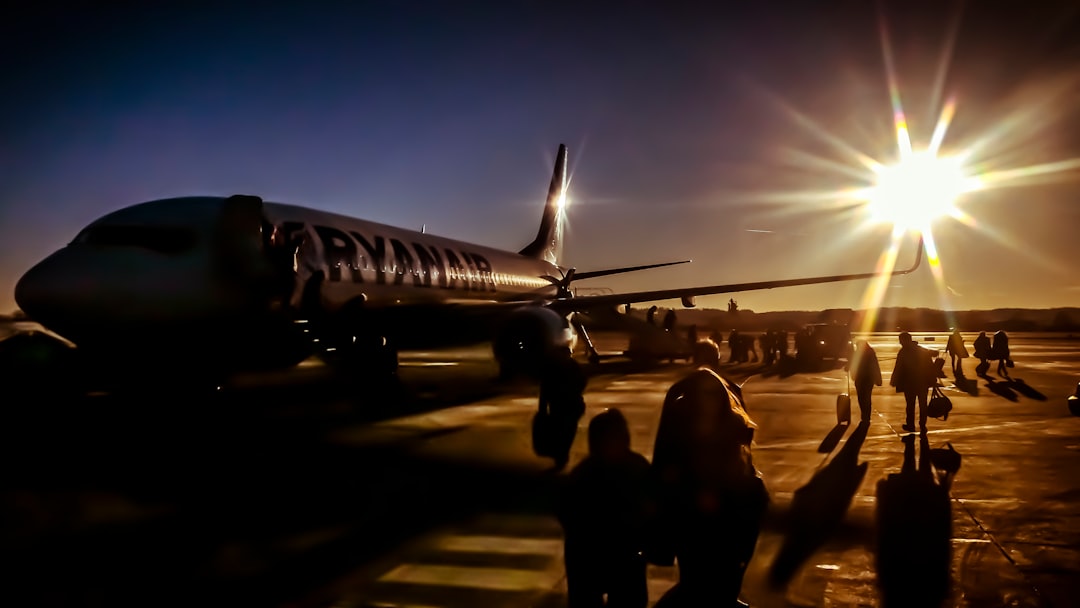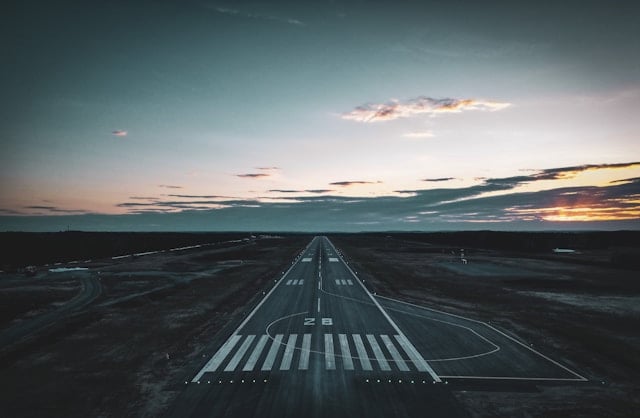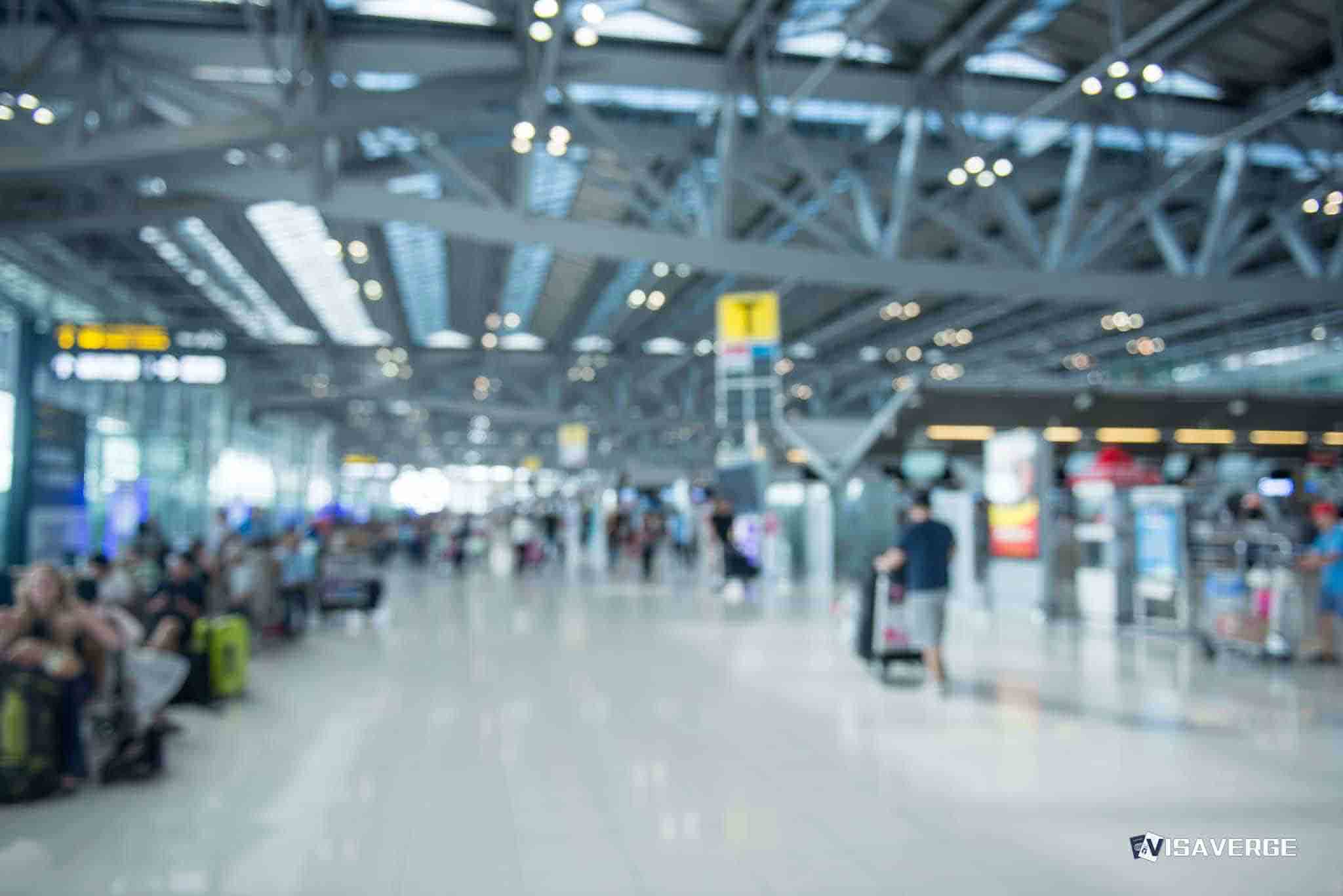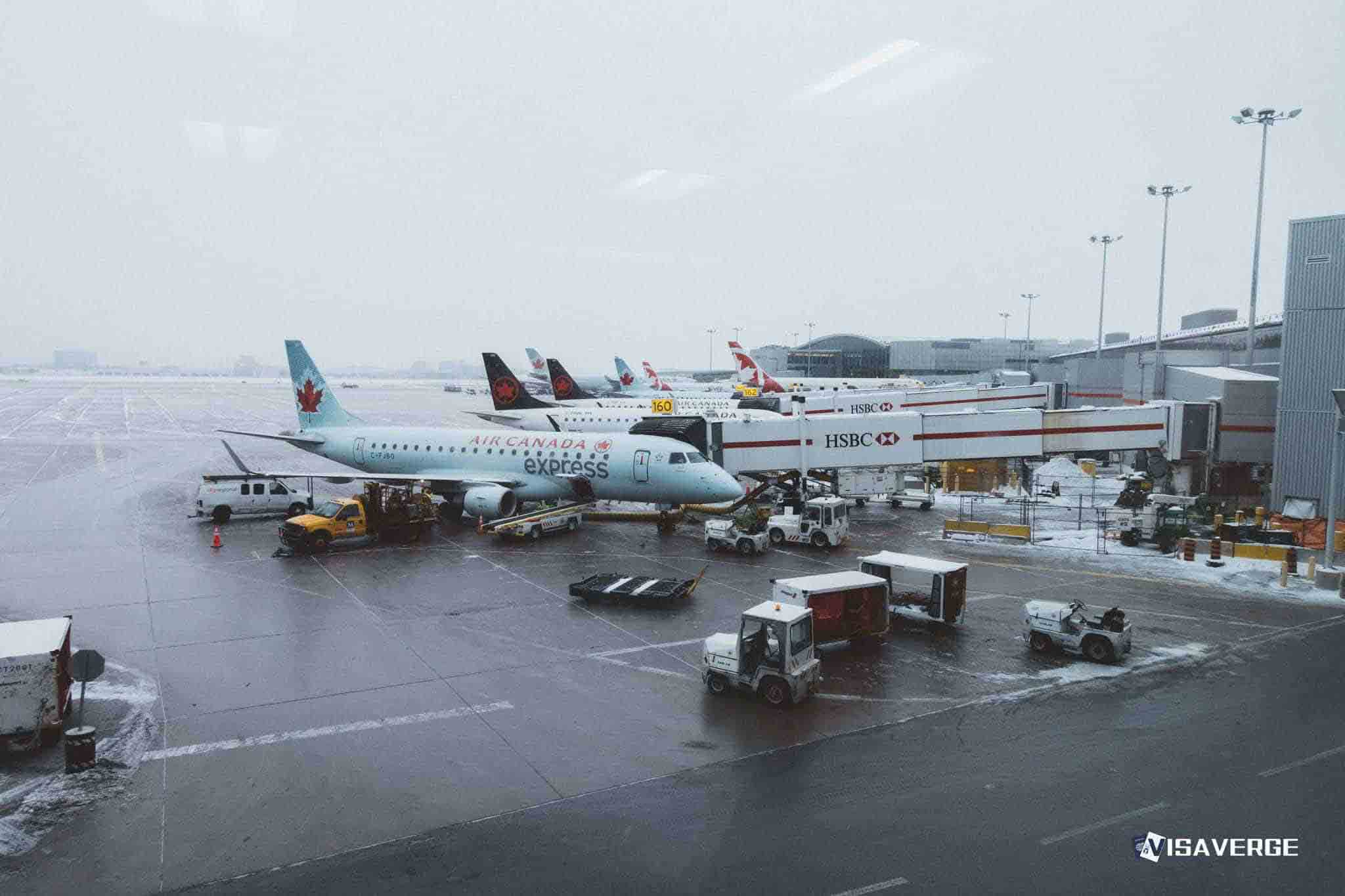Key Takeaways
• Ryanair cancelled 170 flights due to a July 3-4 French air traffic controllers strike affecting 30,000 passengers.
• Strike disrupts flights across Europe as French airspace is a major corridor for international overflights.
• Ryanair demands EU reforms for minimum staffing and overflight protection during strikes to reduce delays.
Travelers across Europe faced major disruptions on July 3, 2025, as Ryanair cancelled 170 flights due to a nationwide strike by French air traffic controllers. The strike, which began on July 3 and is expected to continue through July 4, has caused chaos for tens of thousands of passengers, with ripple effects felt far beyond France’s borders. The industrial action, which centers on disputes over staffing levels and outdated equipment, has reignited calls for urgent reform of European air traffic control systems.
Who Is Affected and Why?
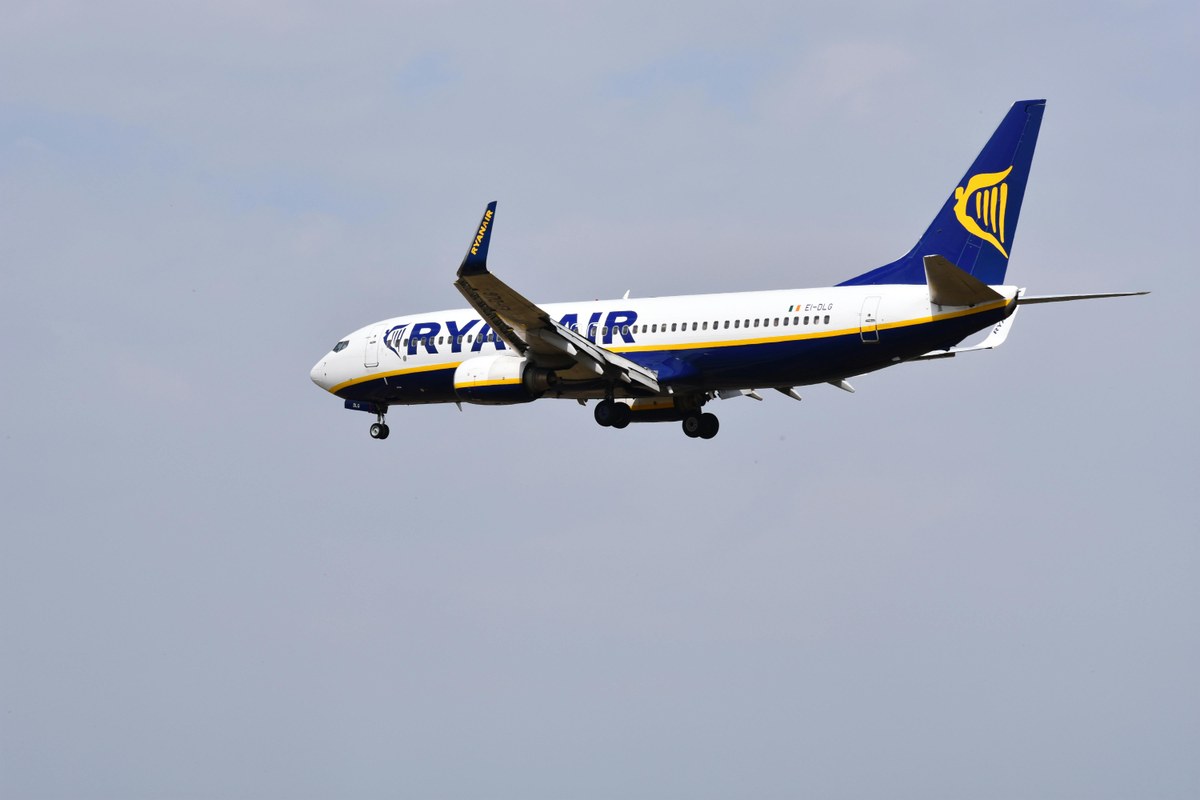
The immediate impact of the strike is clear: over 30,000 Ryanair passengers have seen their travel plans upended. Ryanair is not alone—easyJet has cancelled 274 flights, bringing the total number of cancelled flights to nearly 450 in just two days. The disruption is not limited to flights to and from France. Because French airspace is a major corridor for flights between the United Kingdom 🇬🇧, Spain 🇪🇸, Ireland 🇮🇪, Greece 🇬🇷, and other European countries, the strike affects many overflights that never land in France.
Why Did the Strike Happen?
French air traffic controllers have been raising concerns for years about staff shortages and aging equipment. They argue that without more staff and better technology, they cannot safely and efficiently manage the huge volume of flights that pass through French airspace, especially during busy summer months. The strike is their way of putting pressure on the French government to address these issues.
Ryanair’s Response and Demands for Reform
Ryanair CEO Michael O’Leary has been outspoken in his criticism of the strike, calling it “recreational” and accusing French air traffic controllers of holding European travelers hostage. He argues that national strikes in one country should not be allowed to disrupt flights across the entire continent. O’Leary has called on the European Union to step in, demanding:
- Minimum staffing levels during peak travel hours, even during strikes
- Protection for overflights, so that flights passing through French airspace are not affected by national disputes
According to analysis by VisaVerge.com, Ryanair believes that these measures could eliminate up to 90% of air traffic control-related delays and cancellations.
How Are Passengers Affected?
For travelers, the effects are immediate and stressful. Many have found themselves stranded at airports, forced to rebook flights or cancel trips altogether. The timing is especially painful, as July marks the start of the busy summer holiday season in Europe.
What Should Passengers Do?
If you are affected by the cancelled flights, here are some practical steps to follow:
- Check Your Flight Status: Go to your airline’s website or app for the latest updates.
- Rebooking or Refund: If your flight is cancelled, you can usually choose to rebook on another flight or claim a refund. Airlines like Ryanair provide online forms and customer service contacts for this purpose.
- Contact Your Airline: For specific questions or if you need extra help, reach out to your airline directly. Ryanair’s official website, corporate.ryanair.com, has up-to-date information and contact details.
- Know Your Rights: Under European Union rules, passengers whose flights are cancelled are entitled to a refund or rebooking. In some cases, you may also be entitled to compensation, depending on the reason for the cancellation and how much notice you received.
Wider Impact on European Travel
The strike’s effects go far beyond the passengers on the cancelled flights. Airlines face significant financial losses, as they must refund tickets, pay compensation, and manage the logistical nightmare of rescheduling thousands of travelers. Airports across Europe are dealing with overcrowding and confusion as passengers scramble to find alternative routes.
Tourism industries in countries like Spain 🇪🇸, Greece 🇬🇷, and Italy 🇮🇹, which rely heavily on summer visitors, are also feeling the pain. Many travelers may decide to cancel or postpone their trips rather than risk further disruptions.
Airlines’ Perspective: Mounting Frustration
For airlines like Ryanair and easyJet, the strike is the latest in a series of challenges. They argue that it is unfair for national disputes in one country to disrupt flights across the entire continent. Airlines are urging the European Union to take action to protect overflights and ensure that minimum staffing levels are maintained, even during strikes.
Michael O’Leary, Ryanair’s CEO, has been especially vocal. He has written to European Commission President Ursula von der Leyen, calling for immediate reform. O’Leary argues that the current system is outdated and leaves airlines—and their passengers—at the mercy of national disputes.
Regulatory and Political Response
The European Commission is under growing pressure to act. With more strikes possible this summer, officials are considering new rules to protect European flight corridors during industrial action. Some proposals include:
- Requiring minimum staffing levels for air traffic controllers during peak travel times
- Allowing other countries’ air traffic controllers to manage overflights when the country responsible is on strike
- Modernizing air traffic control equipment to reduce the risk of delays and improve efficiency
These changes would require agreement among all EU member states, which is never easy. Some countries worry about losing control over their own airspace, while others are concerned about the cost of new equipment and training.
Background: Why French Airspace Matters
French airspace is one of the busiest in Europe. Many flights between northern and southern Europe pass over France, even if they do not land there. This means that when French air traffic controllers go on strike, the effects are felt across the continent.
In recent years, strikes by French air traffic controllers have become more common, often causing widespread delays and cancellations. Airlines and passengers have grown increasingly frustrated, arguing that national disputes should not be allowed to disrupt international travel.
What Is Being Done to Help Passengers?
Airlines are working hard to help affected passengers. Most offer the choice to rebook on another flight or receive a full refund. Some also provide vouchers for food and accommodation if passengers are stranded overnight.
If you are affected, here’s what you can do:
- Visit your airline’s website for the latest information and to manage your booking
- Keep all receipts if you have to pay for extra expenses, as you may be able to claim these back later
- Check your travel insurance to see if you are covered for delays or cancellations
For more information on your rights as an air passenger in the European Union, you can visit the official EU passenger rights page.
Looking Ahead: Will There Be More Strikes?
Unfortunately, there is a real risk of further strikes this summer. Unless the French government and air traffic controllers can reach an agreement on staffing and equipment, more industrial action is likely. This means that travelers should be prepared for possible disruptions in the coming weeks and months.
Airlines and travel industry groups are urging the European Commission to act quickly. They argue that only EU-level reforms can prevent a repeat of this summer’s chaos.
Policy Implications: The Need for Reform
The current crisis has made it clear that Europe’s air traffic control system needs reform. Ryanair and other airlines argue that:
- Minimum staffing levels should be required during strikes to keep flights moving
- Overflights should be protected, so that flights passing through a country’s airspace are not affected by national disputes
- Modern equipment and better training are needed to handle the growing number of flights in Europe
These changes would help ensure that travelers can rely on air travel, even during periods of industrial action.
Multiple Perspectives: Passengers, Airlines, and Regulators
- Passengers: For most travelers, the main concern is getting to their destination on time. Strikes like this one cause stress, confusion, and financial loss.
- Airlines: Companies like Ryanair face huge costs and damage to their reputation when flights are cancelled. They want the EU to step in and protect their operations.
- Regulators: The European Commission must balance the rights of workers to strike with the need to keep Europe’s airspace open and efficient.
Practical Guidance for Travelers
If you have a flight booked in the next few weeks, here are some tips to reduce the risk of disruption:
- Book direct flights where possible, as these are less likely to be affected by overflight issues
- Sign up for flight alerts from your airline, so you get the latest information as soon as possible
- Have a backup plan in case your flight is cancelled, such as knowing alternative routes or being ready to rebook quickly
- Keep important documents handy, including your passport, tickets, and any travel insurance details
What Happens Next?
The coming weeks will be critical. If the European Commission acts quickly, it may be possible to put new rules in place before the end of the summer. However, if talks drag on, travelers could face more cancellations and delays.
Ryanair and other airlines are likely to keep up the pressure on EU officials. They argue that the current system is not fit for purpose and that only bold action will prevent future chaos.
Conclusion: Key Takeaways for Travelers and Stakeholders
- Ryanair has cancelled 170 flights due to a French air traffic control strike, affecting over 30,000 passengers.
- The strike impacts not just France, but flights across Europe, especially those passing through French airspace.
- Passengers should check their flight status, rebook or claim refunds, and know their rights under EU law.
- Ryanair and other airlines are calling for urgent EU reforms to protect overflights and require minimum staffing during strikes.
- The European Commission is under pressure to act, but further strikes are possible this summer.
For the latest updates, always check your airline’s official website and the European Commission’s passenger rights page. As reported by VisaVerge.com, the situation remains fluid, and travelers should stay informed and be prepared for possible changes to their plans.
By staying alert and knowing your rights, you can better manage the challenges caused by cancelled flights and air traffic controller strikes. The hope is that with strong action from the European Union, future travel disruptions can be minimized, making air travel more reliable for everyone.
Learn Today
Air Traffic Controllers → Professionals managing aircraft movements safely in controlled airspace and airports, vital for flight coordination.
Overflights → Flights that pass through a country’s airspace without landing within that country.
EU Passenger Rights → Legal protections ensuring refunds, rebooking, and compensation for passengers under European Union aviation law.
Industrial Action → Collective employee actions like strikes intended to enforce demands, often disrupting normal operations.
Minimum Staffing Levels → A required number of staff maintained during strikes to ensure basic operational continuity.
This Article in a Nutshell
Ryanair cancelled 170 flights amid a French air traffic controllers strike disrupting over 30,000 passengers across Europe. The strike highlights urgent reform needs in staffing and technology to prevent widespread delays and improve travel reliability throughout the continent during industrial action.
— By VisaVerge.com










